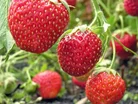Monsanto invests $125mn in Pairwise to work on gene-edited produce made with Crispr

Monsanto has invested $125mn in a gene-editing startup called Pairwise, as the agriculture giant explores creating the first fruit and vegetables made using the gene-editing tool Crispr.
By leveraging the gene-editing tool, the research and development partnership aims to accelerate innovation in agriculture with gene editing.
The pair hopes to help researchers identify areas inside the genome of crops such as corn soybeans, strawberries or apples by leveraging the gene-editing tool.
Using the innovation, researchers could then manipulate the DNA to make products more flavourful, sweeter or bitter.
On top of this, they could also extend the shelf life of fruit and vegetables or safeguard them from environmental challenges.
SEE ALSO:
- Comment: Digitisation is Key to Averting the Global Food Crisis
- Smart farming: Alternative uses of advanced technologies
- Online supermarket Ocado achieves near-zero levels of food waste
Under the agreement, Pairwise will work in corn, soybeans, wheat, cotton and canola crops exclusively with Monsanto in a bid to advance agriculture research.
“Part of Monsanto’s commitment to delivering new technologies to farmers is recognizing other innovators we can work with to accelerate solutions,” said Dr Robb Fraley, Monsanto chief technology officer.
“We are excited to be collaborating with the pioneers in gene editing at Pairwise to build on the robust body of research driven by our in-house team.”
Under the collaboration and licensing agreement, Monsanto has also that it would contribute $100mn to access and develop Pairwise's intellectual property in row crop applications
CEO of Pairwise, Tom Adam, who previously served as Monsanto’ vice president of global biotechnology, told Business Insider that the pair aims to get some of the first fruit and vegetables made using CRISPR to grocery-store shelves in five to 10 years.



